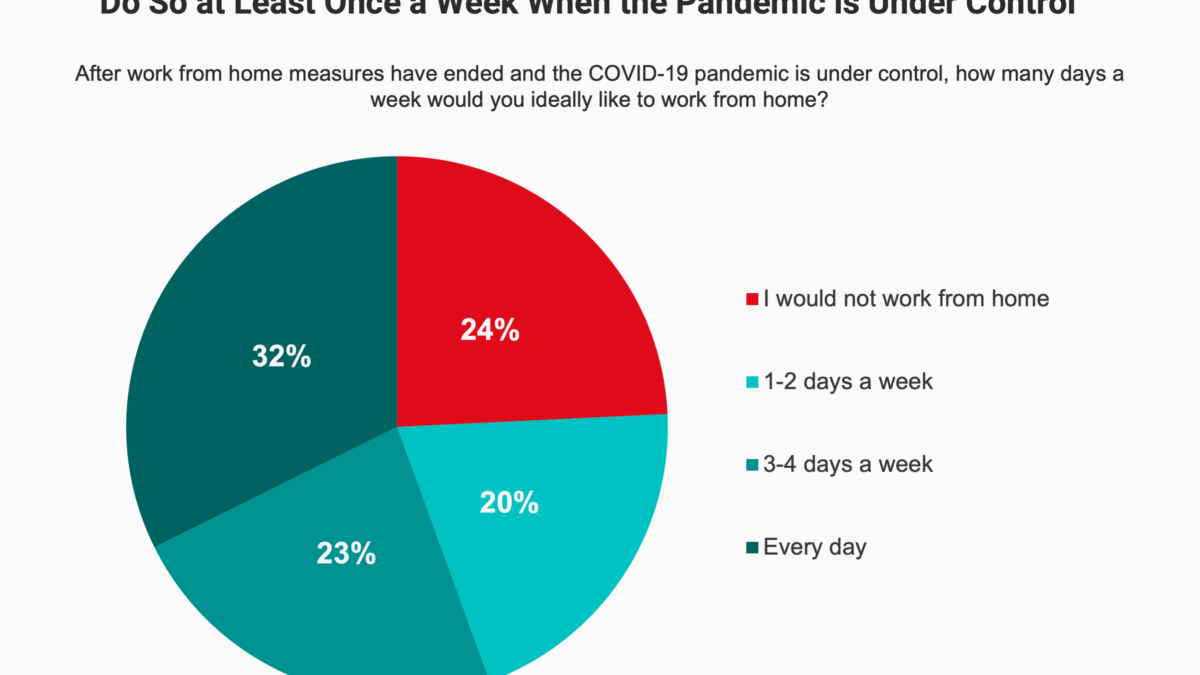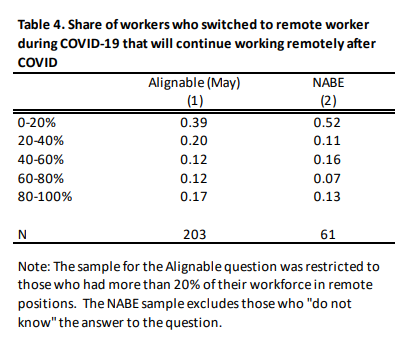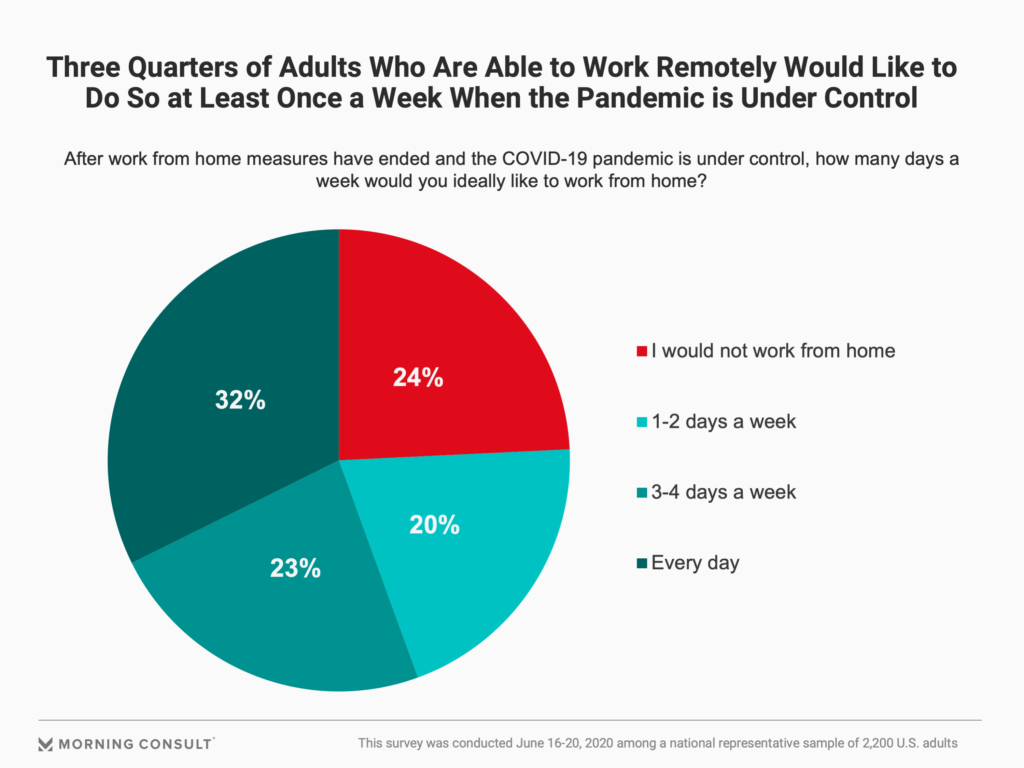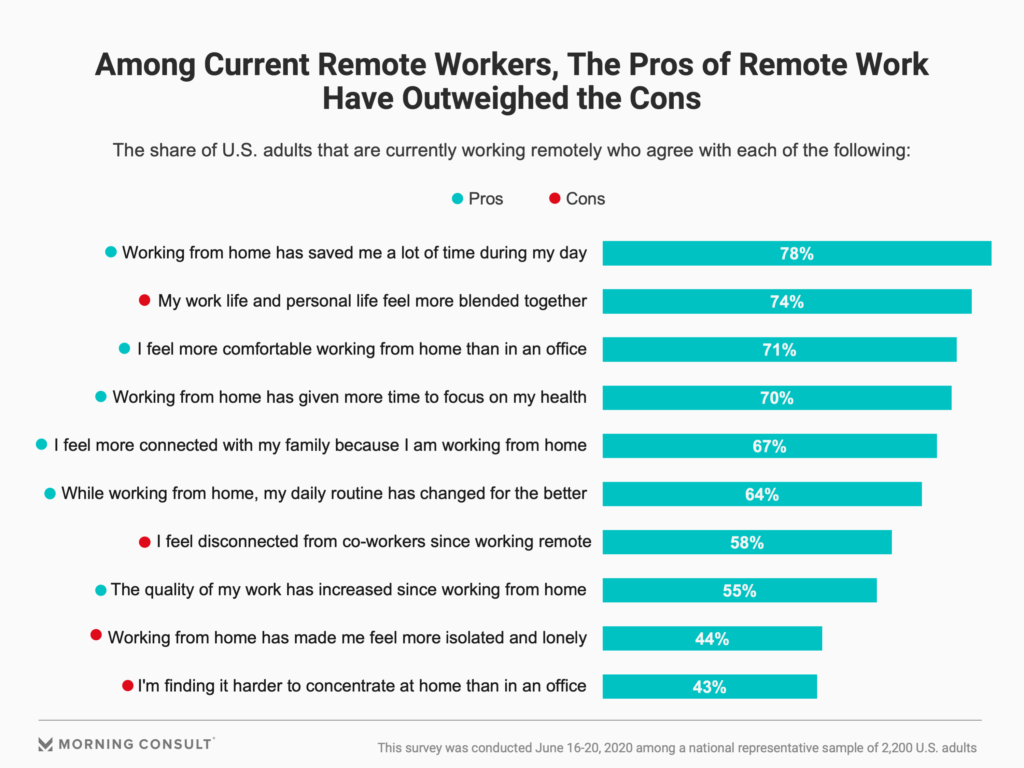
by Theresa Walsh Giarrusso

Across industries, employers believe that more than 40% of workers who had switched to work remotely during the COVID-19 crisis would continue to work from home after the crisis ends, according to a new study from the National Bureau of Economic Research released in late June 2020.
While the NBER found differences across industries in the number of workers able to work from home as well as the productivity achieved, it did NOT find differences in the number of people the industries expected to continue to work from home. This study suggests a significant reduction in future office space demand.
The NBER queried 1,770 leaders of small businesses who are part of the Alignable network. Eight weeks after the first survey, Alignable conducted a follow-up survey to further examine remote work. It supplemented this data with a survey of 70 business economists who are members of the National Association of Business Economists (NABE). Alignable respondents were generally owners or managers of small businesses, while NABE respondents generally work at larger firms and are not owners.
From the NBER study:
“In the NABE survey, we find that 36 percent of respondents believe that more than 40 percent of workers who had switched to remote work during the COVID-19 crisis would continue working remotely after the crisis ends. The Alignable survey results were quite similar, and 40 percent of firms thought that 40 percent of more of their workers that switched to remote work during the COVID-19 crisis would continue working remotely after the crisis ends. If these projections prove true, this suggests a significant reduction in future demand for office space.”
The study also found that remote work is much more common in industries with better educated and better paid workers. It also found that employers think that there has been less productivity loss from remote working in better educated and higher paid industries.

A new Morning Consult survey found employees working from home report positive experiences and want employers to continue offering remote work as an option after the COVID-19 crisis.
From the Morning Consult study:
“Overall, 73 percent of U.S. adults who have careers where remote work is possible report that the pandemic has made them feel more positively about the prospect of remote work. And given the option, three quarters of these workers say they would like to work from home at least 1-2 days a week once the pandemic is under control. . . .
“Among those adults who are currently working from home amid the pandemic, most report positive experiences, and say they would be more likely to apply for a job that offers an option to work remotely. When asked to reflect on their experience, more remote workers agree with statements illustrating the pros of working from home than with the statements outlining the cons. For example, 78 percent of current remote workers agree that working from home has saved them a lot of time during their day, whereas only 44 percent agree that it has made them feel more isolated or lonely.

“In the shorter term, the survey also indicates there are major disagreements among employees when it comes to the suitable timeline for returning to office environments, and nearly a third of current remote workers say they wont return to the office until a COVID-19 vaccine is available.”
The survey was conducted June 16-20, 2020 among a nationally representative sample of 2,200 U.S. adults. That sample included 482 U.S. adults who are currently working remotely and 1,066 adults who have careers where remote work is possible.
To get the full results, download the report here.
Other new studies of interest:
Cushman & Wakefield: The Future of Workplace
The Atlanta Fed/Chicago Booth/Stanford Survey of Business Uncertainty (SBU).
